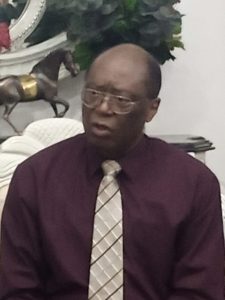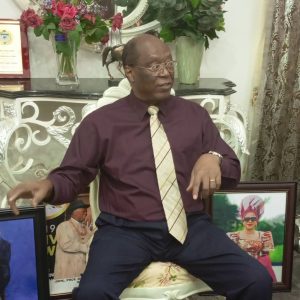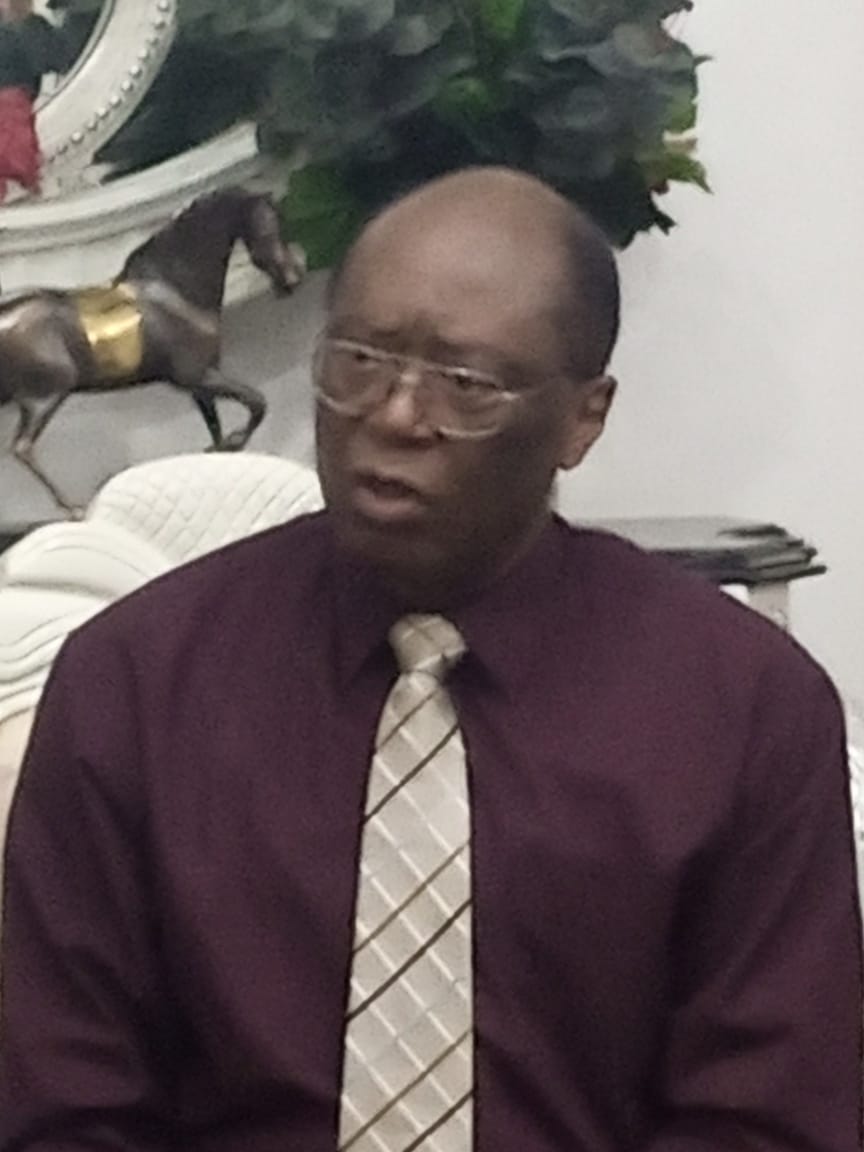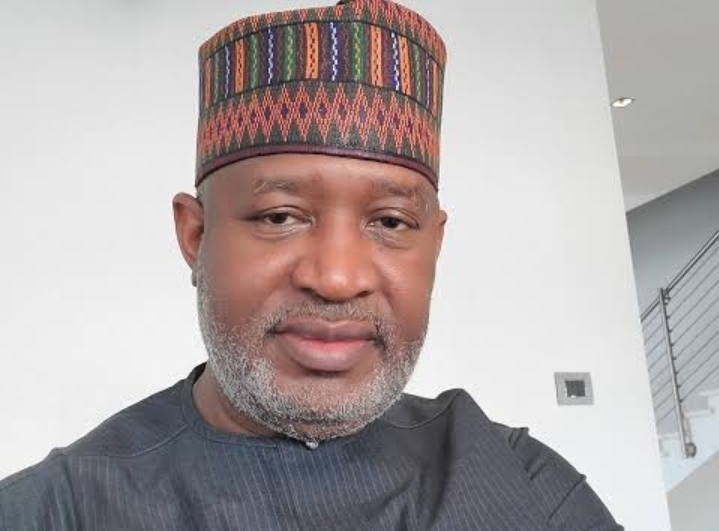…says there’s nothing like lower or upper chamber in Nigeria
Former Governor of Edo State, two-time Senator, former Chairman National Law Reform Commission, NLRC, a Professor of Law, Senator Oserheimen Osunbor in this chat with TNG’s Regional Editor, North, Emman Ovuakporie and Edo journalists resident in Abuja spoke extensively on the new Bola Ahmed Tinubu’s led administration and various knotty national issues, excerpts.
Hear him:
We want to get your view of the government of the day. A new government has just been sworn in, the government of President Bola Ahmed Tinubu. What do you think about this new government as a member of the APC?
A: Well, first it is a thing of joy for me personally and as a member of APC that our then presidential candidate, for whom I personally undertook a lot to propagate his good qualities to Nigerians, was found worthy to be elected as president. And as you said, last week Monday he was inaugurated as the 16th president of the Federal Republic of Nigeria.
It is a thing of joy for me that our party won the presidential election and controls a vast majority of the states governorships and even the members of the national assembly. In the senate I think it is about 63 which is a fairly decent number.
So I am happy with the new government formed by APC and in the person of President Bola Ahmed Tinubu. And as I said, I canvassed a lot for him based on his track record, based on his antecedents, based on what I know about him and his capacity to really bring about the much needed change in Nigeria.
He is just barely one week in office but you can see that he has not rested, he has been doing a lot to ensure that as he promised, he hits the ground running. He has already made significant appointments and almost from the word go, he was confronted with the challenge of a looming industrial action by the NLC and the TUC.
But I am sure that we are all impressed by the swiftness with which he addressed the grievance of Labour to the extent that they have reached a truce. The strike which was threatening to commence on Wednesday has now been suspended in order to give the new administration time to settle down and come out with its own solutions to cushion the pain and hardship that the ending of the subsidy scheme will bring about.
So I think I am impressed so far and every Nigerian should be impressed. He is exuding a lot of energy. He is beginning to bring to bear the power of his intellect because as we said before, he doesn’t pride himself as having raw muscle, raw power but he has brain power and I am sure that with his brain power, he will be able to address the myriads of problems that confronts us as a country.
What would you be setting for him, like priorities? What are the kind of things you would like him to focus on?
Well again these were copiously addressed in the Renewed Hope manifesto which was unveiled. And really Nigerians all agreed that there are certain key areas that need to be addressed which are insecurity, the economy, the unemployment crisis, the educational system, I think those are key and then the infrastructure of course. Most roads in many parts of the country particularly travelling from here to Edo state, for instance, my own state is a nightmare. Getting even to Ekpoma which is my town is a nightmare.
So I hope that he will begin to address those issues which as I said were well spelt out in the Renewed Hope manifesto.
He has a firm understanding of what the problem is and I believe he has the capacity to address them.
The major challenge I see is funding. As you know, there is a huge debt overhang on the government. You know when you are owing many debtors you cannot really exert yourself as a man because you are afraid creditors can swoop on you at any time and you may not be able to do those things which you would like to do if you are being pressured to pay debts.
We have a huge debt overhang which will be a burden but I respect his acumen, his thinking capacity. Drawing from his experience as an operator in the financial sector, he will be able to come up with solutions at least in the short term to address those things that Nigerians will really want to see addressed as quickly as possible.
You were a former senator and you have been an executive, the issue now is who leads the 10th National Assembly; from your own understanding, who do you think can give a better leadership?
Let me just make some preliminary points. Once a senator, always a senator, so I am not a former senator, I am still a senator but you can say past senator, that is one. I am a non-serving Senator.
The second issue I want to clarify is this upper chamber and lower chamber thing in Nigeria. We really do not have it in Nigeria; the constitution doesn’t recognize an upper chamber or a lower chamber.
The terms upper chamber and lower chamber have a historical origin because in the US, their first congress building had about four or five floors. The senate occupied the fourth floor, the House of Reps occupied the third floor or the second floor, and that was how the terms upper chamber and the lower chamber came about but in the Nigerian national assembly, they are both on the same floor.
This may appear to be trivial but when I was in the senate, 99 set, there were some difficulties arising from this perception of who is upper and who is lower because the members of the House of Reps, kicked seriously against an attempt to see them as inferior to the senate and this came to the fore when we were passing the bill on the order of protocol, hierarchy of government officials with the president as number one and so on.
Senators, were in the original draft in the senate version, listed before the members of the House of Reps but they protested and we had to go for harmonization between the bill passed by the House of Reps and that passed by the senate.
So what you find now is senators and members of the House of Reps on one line in the order of protocol; so that is to say that there is no upper or lower chamber in Nigeria.
As for the jostling that you are seeing now, again it is to be expected, because they are all equals, first and foremost. All senators or senator elect are equal. When they come to the chamber on the day of their proclamation and inauguration, they will all be equal.
Amongst those equals it is natural for people to want to contest for positions but there are certain key things I want also to emphasize.
First, we must put the national interest above any personal interest. You know that during the campaigns and general elections, a lot was said about this Muslim-Muslim ticket, Muslim-Christian ticket and so on and so forth. Some people took this very seriously.
And in a nation like ours where religious sensibilities are high, where there is still a crying need for integration not only amongst persons but even people of diverse backgrounds, diverse religions, so I think we must be sensitive to this: that while the executive has as president a Muslim and a Muslim as vice president it is good (and they are numbers one and two in the hierarchy) the number three which is the president of the senate and number four speaker of the House of Reps, it is fair for national integration to balance the persons of other religions. That is where we are now.
And also while you are balancing that, also balance it based on the geo-political considerations so that the geopolitical regions that are outside of the South West and the North East should have a good position zoned to each of them.
I also want to emphasize here that we talk of rotation of the presidency between north and south but having produced the president and vice president, you then zone. People confuse these two terms, rotation and zoning.
For me, rotation of the presidency is between north and south but zoning is to ensure the distribution among the geopolitical zones. That is where the word zoning comes in, taking care of the zones. North and South is rotation and that is what I believe should be done in states. There should be rotation among the senatorial districts in the states.
Once the governor and the deputy governor emerge, the other positions will be zoned; where does the speaker come from? Once the number one emerges, then you zone the others in the state.
And as I said, the whole idea is to integrate people and build a sense of belonging amongst all the divergent peoples or religions for national cohesion, for state cohesion, for amity, for peace and progress because if there is no peace and progress, it can be costly.
People sometimes underestimate the value of stability, the value of peace and progress. This is very important; you cannot quantify it easily with money but we must constantly bear in mind the need to carry everybody along.
I believe that answers your question that while individuals are entitled to aspire for their personal interests, it is also good to put in view the wider considerations of national unity, national integration, peace and progress.
Will you say that as a leader of the party, that you will flow along with what the party is suggesting about the leadership of the national assembly?
Yes, I respect party decisions because if you do not respect party decision then there will be problems. It is only fair that once the party has come out to say this is the position that all conscientious party members should adhere.
Will you adhere to the party’s decision?
Well, that is important. The party has the responsibility to guide its members that is why it is a party. We don’t yet have independent candidates, at least none of the persons elect either in the House of Reps or Senate is independent. They were all sponsored by political parties.
And I think having just emerged under the platform of a political party, they must not just immediately disregard directives from their political party; it is too soon in my view for anybody to say to his party, we are not going to listen to you, I am here on my own basis, I won’t listen to you as a political party, I don’t think that will be very responsible behaviour.
They were sponsored by political parties and the reasons they were sponsored is that they will go and implement the programmes and policies of the party; for you to now get there, the very first test you fail it, I don’t think it portends well for our democracy.
But having said that, as I told them during the induction programme, at the end of the day, every senator sitting there on that day will have his or her conscience to direct how he or she will vote.
The party is not going to bring a hammer or a gun and put it on anybody’s head, the same thing with the members of the House of Reps. Ultimately it will be their decision but the party has a duty, indeed a responsibility, to point the way to its members in the national assembly.
You are a professor of Law and a past senator and past chairman of the Nigerian law reform commission and a lot of our laws are crying for review. Tell us, which of the areas do you think Nigeria needs to urgently reform in our constitution vis a vis the issue of Abuja 25%?
Well, first of all, no constitution is perfect; no work that is created by a human being can be perfect. Even the constitution of the United States of America is not perfect. It has been amended 27 times, the last amendment I think was 1976, the 27th amendment.
The constitution of the Republic of South Africa came into force in 1994, it has been amended at least 16 or 17 times, which is to show that no constitution is perfect, Nigeria constitution also is not perfect which is why the makers in section 9 made provisions for how the constitution will be amended, they used the word altered but it is the same thing.
And as you know, it has experienced a lot of alterations or amendments since it came into existence in 1999. The same thing with laws. Laws are amended from time to time as the need may arise.
You know that many members of the national assembly sponsor bills to amend existing laws.
The Nigerian Reform Law Commission of which I was a chairman is in the business of proposing new legislations, amending existing laws at the national level and even advising states that request for assistance. So this is to say that it is normal, it is part of life.
But having said that, I will say that some difficulties in Nigeria sometimes arise because we want to put so much into writing in the constitution for the avoidance of doubt but as you do that, you create unintended problems. I say that with respect to section 299 of the constitution that talks about the applicability of the constitution to the Federal Capital Territory.
It says there shall be a Federal Capital Territory section 297. Section 299 says that the constitution will apply to Federal Capital Territory as if it were a state and accordingly …People usually put full stop after the word state but there is no full stop there if you read it.
It says the FCT shall be treated as if it is a state and accordingly wherever the Constitution talks about governor of a state, for the Federal Capital Territory it shall mean the president or a minister assigned by the president.
Where the Constitution refers to the house of assembly of a state, for the FCT it shall be the national assembly. Where it refers to the judiciary of a state, it shall mean the judiciary of FCT. That is what is intended.
And if you look at the marginal notes, it says application of the constitution to FCT; it is not status of FCT.
The 36 States and FCT are mentioned in section 3 of the constitution as the component units of Nigeria.
Section 299 didn’t even need to say as if it is a state but they put it there for the avoidance of doubt which is unnecessary. This has created this confusion that we are now having, that Abuja is a state.
Nigeria consists of the states and the FCT. It is the 36 states and the FCT that form Nigeria.
As I have stated elsewhere, during the National Sports Festival, if you look at the medals table, you will see states and FCT listed because they go together; Nigeria consists of states and the FCT.
All I can say now because this matter is in court, is that this has generated a lot of heat by people treating it as a matter of legal interpretation.
For me, it is a matter of understanding English grammar. It is a matter of English comprehension. In law the literary rule of interpretation of statutes says, read it and give it the ordinary English meaning. It is when you cannot make sense of this that you proceed to other rules of interpretation such as the golden rule, the mischief rule, the ejusdem generis rule, etc.
You did comprehension in school, didn’t you? If you did comprehension, go and read that section, it says that a candidate must score 25% in two third of the states and FCT. It didn’t say 25% in two thirds of the states and 25% in the FCT but that is what they are saying; is that what is provided in the constitution?
So as I said they are reading into the constitution what is not there because what is there is that you score this in not less than two thirds of the states of the federation and the FCT. It is a matter of English comprehension. You don’t even need to be a lawyer to understand the section.
We have new law makers coming in for the next four years, what agenda will you set for them?
I will answer that but let me just to conclude the point I was saying. You know the American constitution if you look at it, it is very small in size compared to the size of Nigeria’s constitution. In our constitution they put in so many things needlessly and then problems arise as a result of verbosity.
The American courts are able to interpret the provisions of the American constitution in a way that the system is operating well because they understand the language, the English language. They know what the intendments are.
But in Nigeria we will say English is not our mother tongue, so that is why some of our people don’t understand English comprehension. I believe that is the whole genesis of this problem about 25% in FCT.
Alongside the agenda of the parliament, what would you advice the new government to do?
Again people say this parliament, do we have a parliament in Nigeria? We have a national assembly. Check the constitution you won’t see parliament mentioned in it.
Section 4 says, the legislative powers of the Federal Republic of Nigeria shall be vested in the national assembly consisting of a senate and House of Representatives. The laws they pass are Acts of the National Assembly, not Acts of Parliament.
And in the rest of the provisions of the constitution, it talks of senate, it talks of House of Representatives. There is no mention of parliament. We had a parliament in the first republic but that ended in January 1966.
If you look at the constitution of 1963, you will see parliament in it but not anymore.
Now to your question. The agenda again will be based on the manifesto. I believe that elected officials must implement their party manifesto, so what they have promised in the manifesto to do, they should strive to do.
There are key things that I spoke about that are of immense and immediate concerns to Nigerians and I would want the members of the national assembly to address them.
Nigerians are highly expectant, they are almost impatient to see these improvements in their lives. I want to believe that the members elect are very conscious of this.
I want to believe that during the campaigns they also promised their constituents what they are going to do to address those problems and I expect that they should be able to match their promises with action.
It is not for me to set an agenda for them. The agenda will be set by the political party and by the respective members themselves.
During my own time, I had my own agenda, so it is not for me to set an agenda for successive senators.
As a party man, you spoke a while ago about the party being supreme and having a manifesto that members are expected to implement in the government and we have a situation on ground where some members are being rebellious at the party’s decision to zone positions to certain areas of the country. They say in a family there are always ground rules that whether spoken or written if violated or obeyed attract reward or punishment; as a party could you recommend for sanction or punishment of any sort for people who rebel against the party’s position?
Well, it is not for me to recommend. The question should be what happens, how does the system treat rebellious members of the party? These things are not new, some have done it before and some got rewarded and some got sanctioned, so it is a continuous thing.
As you said it, those who do well are commended; those who are rebellious also get rewarded with the prize of rebellion. That is what happens.
But again, in life you can pardon one infraction but if it becomes continuous, repetitive or sustained, it is then that it will really become a rebellion. If somebody has reasons of conscience, for instance, to act in one particular way or the other, you note it down but if it becomes continuous, sustained or persistent then of course, whatever the person gets out of it, he will live with it, as they say. The same thing for those who cooperate with the party, the party usually rewards them.
For instance, by giving them the party ticket if they are entitled to return after four years. Usually members who have done well, are rewarded with ticket for a second term or more terms as the case may be and likewise those who are rebellious cannot even come back to the party to say we want to go again. They will be told the one you went before you disappointed us.


THE END








